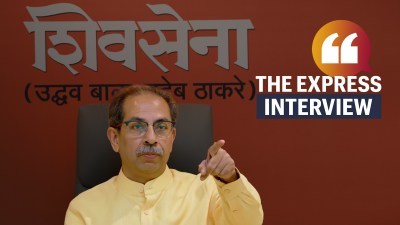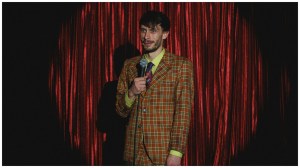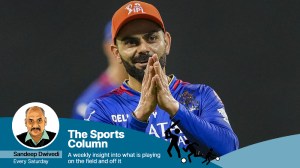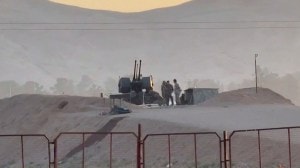- India
- International
Dussehra: Ravan’s effigies bring Hindu, Muslim artisans together
Sharafat Ali Khan (38), the second generation of a Muslim family in the business, is busy keeping a close watch over a team of men who are performing their designated tasks as if on an auto mode.
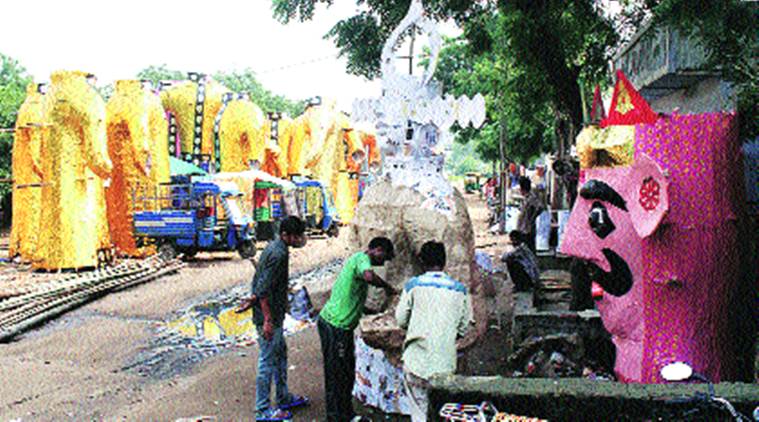 Effigies outside Sharafat Ali Khan’s temporary house in Ahmedabad on Sunday. (Source: Express Photo by Javed Raja)
Effigies outside Sharafat Ali Khan’s temporary house in Ahmedabad on Sunday. (Source: Express Photo by Javed Raja)
Twenty-four artisans from Hindu and Muslim communities from Agra and Mathura work in tandem to make effigies of Ravana on Dussehra in Ahmedabad. Muslim-dominated ‘Khanwadi Muslim Basti’ in Ahmedabad’s Ramol area is the place where this team temporarily settles down for 40 days and prepares effigies of Ravana, Meghnath and Kumbhkaran for giant infrastructure companies from across the state. This year, the famous Hare Krishna temple in Wadaj on the outskirts of Ahmedabad is added to the list of “loyal parties”.
WATCH VIDEO: Ravanas Take Over The Delhi Streets Ahead of Dussehra
Sharafat Ali Khan (38), the second generation of a Muslim family in the business, is busy keeping a close watch over a team of men who are performing their designated tasks as if on an auto mode. Sitting outside a one-room structure on the roadside, a lean man in his forties is generously spreading a slimy off-white paste with his bare hands over sheets of brown paper, successively handing these over to another standing close by. The other man then pastes these on a near five-foot tall and three-foot wide bamboo frame, covered with newspapers on the outside. Yet another man is busy giving a long upward twirl to the mustaches of Ravan’s effigy, with sheets of black glazing paper cut into a curve.
Similarly, another team of three is busy giving finishing touches to another effigy, ensuring no inch is left without the golden hue, using shining paper sheets on a 25-foot headless structure. Next to them, in an open area right between rows of houses, are stacked more than half a dozen similar huge golden headless structures, over 50-foot tall, waiting to be dispatched to areas across the state. “The one standing out in pink is of Kumbhkaran,” Sharafat points out to the “odd man out”. Their faces are delivered separately to avoid logistic difficulties of breakage.
A few days back, disappointment loomed over the team as the city was witnessing sporadic rains and there was no space to store the already half-prepared effigies. “Places where the concealing sheets came off, we did them again, working day and night before yesterday,” said Momin Khan, a member of the team.

“We have been making effigies on orders for companies from Mundra, Dwarka, Modasa, Nadiad, Vadodara and Ahmedabad. We also make effigies for people in other states, including Rourkela in Odisha and Jodhpur in Rajasthan. My father started making Ravan effigies nearly 50 years back. I took on the legacy from him starting from the age of 15,” he said.
A resident of Kirawali in Agra district, the team that he brings along from Agra and Mathura is a mix of Hindus and Muslims. “Out of 24, 12 are Hindus and the rest are Muslims. We stay at one place, eat together and work together. Our food is cooked at one place. We pray at the same place; it does not have any boundary or demarcation,” says Jeetubhai, another member of the team, who is associated with Sharafat for the last ten years.
Sharafat’s family (his mother and elder son, who accompany him each year) says that more than Muslim festivals, they feel “attached” to Dussehra and cannot think of doing anything else. “All my four sons are into making effigies for Dussehra. This is what we are known for and identified with. This is part of our lives,” the 68-year-old mother says, refusing to share her name. “I do not want to be identified with my name, but the work we do,” she reasons.
Those accompanying Khan’s family had to leave their families behind. “Our children are small and go to schools. So, we cannot bring them along. Also, here we stay together as a family,” says Badshah Khan, one of the oldest team members from Agra.
Though the earnings, Khan says, are enough to sustain their families and provide for decent education of their children, he also has a wedding decorator business running back home.
Unsure if the legacy would be carried on after him as the eldest of his four sons, Mohsin is keen to complete his post-graduation in commerce and take up a job. “I have four sons. It is too early to predict the future of our legacy, but I am hopeful it will have a long life,” he says, even as he moves aside to attend a call from one of his “parties” who wants to know when would Ravan reach his doorstep.
Apr 20: Latest News
- 01
- 02
- 03
- 04
- 05











